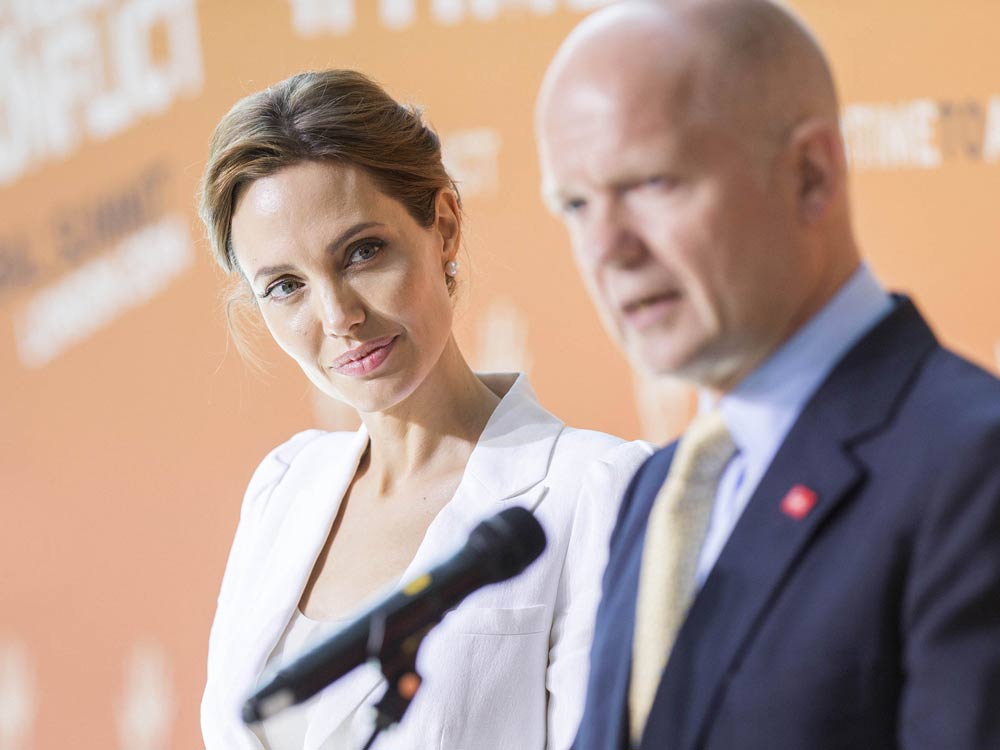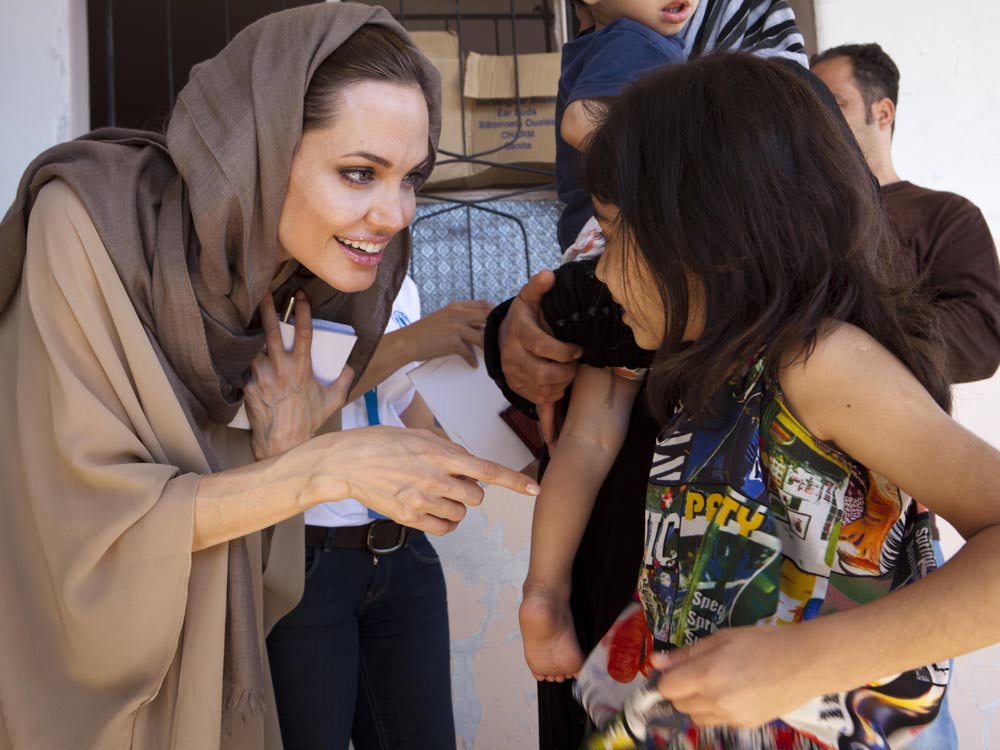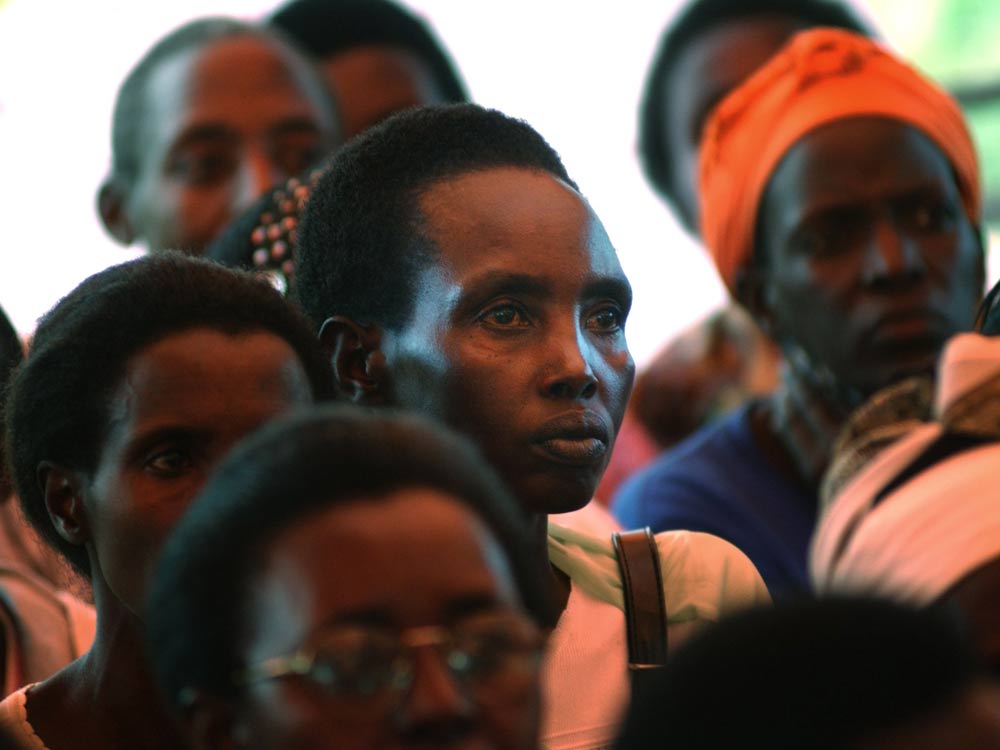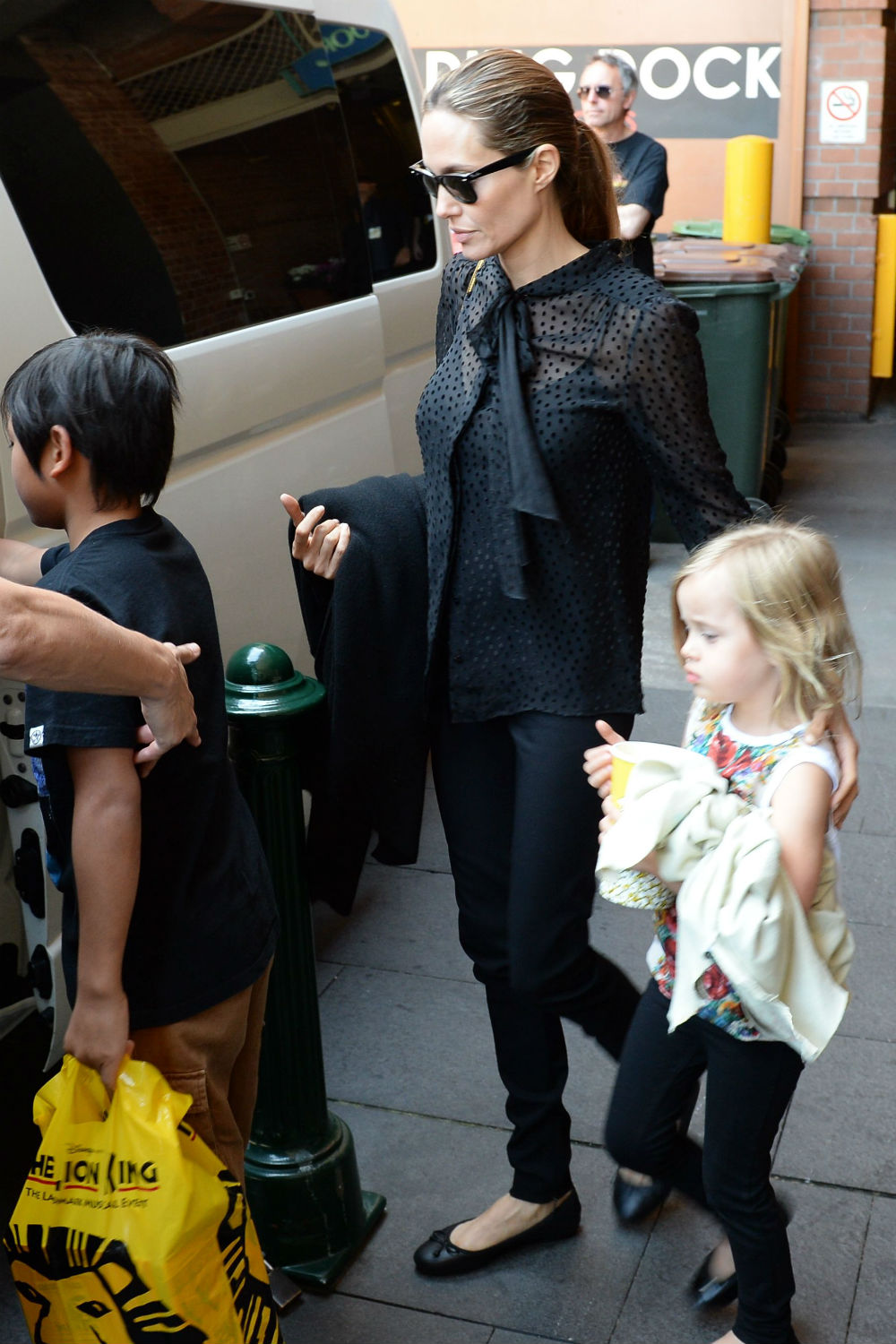It's #TimeToAct: Why We Need To Put An End To Sexual Violence In Conflict
Brita Fernandez Schmidt, the UK executive director of Women for Women International, sheds light on the horrors of sexual violence...

Brita Fernandez Schmidt, the UK executive director of Women for Women International, sheds light on the horrors of sexual violence...
Over 1,000 women were raped every day in the Congo during the worst period of the conflict, between 20,000 - 50,000 women are estimated to have been raped in Bosnia during the war, up to half a million women raped during the Rwandan 1994 genocide… the violence has to stop! And, finally it seems world leaders agree, as Foreign Secretary William Hague and Special Envoy for the UN High Commissioner for Refugees Angelina Jolie, co-chair the first ever Global Summit to End Sexual Violence in Conflict in London 10-13 June.
The Summit represents a real opportunity for progress to be made in ending this abuse. I hope that it leads to two key outcomes:
1. Widespread public demand for ending sexual violence against women. 2. Political leadership and commitment that will lead to the implementation of the global and national commitments (laws) that already exist for ending violence against women. Sexual violence in conflict is a dehumanising and traumatising abuse that is both a result of lawlessness in conflict and a tactic of conflict. Women and girls are overwhelmingly targeted for abuse due to their roles (both within homes and communities) and wider discrimination based on the fact that they are women.

Sexual violence in conflict (against women and girls) needs to be understood as part of the wider issue of violence against women and girls in all countries, whether in conflict or peace.
According to the World Health Organisation, violence against women and girls is a problem of pandemic proportions. At least 1 in 3 women around the world has been beaten, coerced into sex, or otherwise abused in their lifetime with the abuser usually someone known to the woman. This is not just a ‘women’s’ issue, it is a global human rights crisis as we have seen just last few weeks with the two girls gang raped in India, and the woman stoned to death in Pakistan. In some parts of the world a girl is more likely to be raped than to learn how to read and every year, 60 million girls are sexually assaulted at, or on their way to, school.
Due to the value placed on women and girls’ sexual purity, most of our Women for Women International (WfWI) country offices reported that survivors of sexual violence are often forced to marry the perpetrator to prevent shame on the family. Our office in Iraq reported that survivors of sexual violence became targets for ‘honour killings’, or were pressured towards committing suicide, and from our work in South Sudan we know of reported cases of forced prostitution due to the social (and economic) exclusion of survivors.
Marie Claire Newsletter
Celebrity news, beauty, fashion advice, and fascinating features, delivered straight to your inbox!

Increases in sexual violence in conflict also correlates with increases of other forms of violence, by both combatants and civilians. Women for Women International’s participants in South Sudan, for example, reported increases of domestic violence against women since December 2013 by both male and female family members (husbands and mothers-in-law).
At Women for Women International we work with the most socially excluded women in conflict affected countries and, over the past 20 years, we have directly worked with over 400,000 women survivors of war in Afghanistan, Iraq, Kosovo, Bosnia & Herzegovina, Rwanda, South Sudan, Congo and Nigeria. We have learned a lot about how to support women to rebuild their lives after violence and conflict.
So what can be done? Overall, addressing sexual violence must sit within wider efforts to address violence against women. Change needs to happens at all levels – from the government to the community and individual women. Governments have to effectively implement existing commitments to end violence against women. I hope that all countries and their representatives at the Summit will personally commit to implementing existing agreements and exercise their leadership until significant progress has been made.

Through our work with communities in countries affected by conflict, we know that in order to end sexual violence in conflict, initiatives have to focus on working with communities to create an enabling environment for women's participation. A significant part of the training that we provide for the most socially-excluded women in countries affected by conflict focuses on rights education and decision-making to support them to challenge discrimination that they experience, including violence. In Rwanda, for example, WfWI graduates have joined gender- based violence awareness committees which work with police officers. In that way women are actively shaping solutions to violence. Engaging with men and working closely with male leaders in the community is also key to addressing violence against women.
We also know that women's participation needs to be at the heart of any commitments, initiatives and strategies aimed at ending sexual violence against women. I have met so many courageous and wonderful women who have survived some of the most horrendous violence and they are brave and speak out and want to raise their voices to ensure the violence stops. I remember one woman who had been held as a sex slave for 15 years in Congo, she said something to me that I will never forget:
‘All the women around the world should continue speaking out whenever their rights are abused. We should speak about it because our speeches might have an impact. The DRC Constitution is considering sanctions for rape perpetrators to be jailed for 20 years. We should not keep silent. I ask all women all over the world to be courageous and speak out about whatever happens to them. If we do that, we will contribute to the ongoing mission of ending violence against women. We are of great value, and the world will recognise it only if we are united in denouncing evil. To stay silent is itself a form of violence against women.’
You can support us and all the other organisations trying to End Sexual Violence in Conflict by joining us at the ExCeL Centre in London. There are lots of interesting Free Fringe events, open to the public. For example we would love to see you at the following events:
· Film screening: The Greatest Silence: Rape in the Congo, Wednesday 11 June, 10.30am – ExCel cinema.
· Panel Discussion: Lessons from Yugoslavia - What can the world learn from experiences in Bosnia-Herzegovina and Kosovo? Thursday, Discussion Room 2 12 June, 2.30pm.
· Exhibition: I Dream of Congo: Narratives from the Great Lakes Exhibition runs Tuesday 10 – Thursday 12 June at the ExCeL gallery space G10-G11.
· Change the world, one woman at a time: Join Women for Women International Tuesday 10 – Thursday 12 June, ExCeL market place. See you there? You can also follow the Summit on Twitter and Facebook: @end_svc #TimeToAct @WilliamJHague @womenforwomenuk @BritaFS
Got a tablet? Take the new look Marie Claire wherever you go, download straight to your iPad & iPhone, Kindle (just search the store for 'marie claire magazine'), Nook or Google Nexus for only £2.99.
The leading destination for fashion, beauty, shopping and finger-on-the-pulse views on the latest issues. Marie Claire's travel content helps you delight in discovering new destinations around the globe, offering a unique – and sometimes unchartered – travel experience. From new hotel openings to the destinations tipped to take over our travel calendars, this iconic name has it covered.
-
 How are Trump’s tariffs affecting the fashion industry?
How are Trump’s tariffs affecting the fashion industry?The fluctuating situation in the US is having very real consequences
By Rebecca Jane Hill
-
 Here's every character returning for You season 5 - and what it might mean for Joe Goldberg's ending
Here's every character returning for You season 5 - and what it might mean for Joe Goldberg's endingBy Iris Goldsztajn
-
 Celine's new Selfridges pop-up is an ode to summers on the French Riviera
Celine's new Selfridges pop-up is an ode to summers on the French RivieraA one-stop-shop for the ultimate holiday wardrobe
By Clementina Jackson
-
 Proof Of 'The Angelina Jolie' Effect...
Proof Of 'The Angelina Jolie' Effect...Referrals for genetic testing for breast cancer risk more than doubled across the UK thanks to Ange.
By Suzannah Ramsdale
-
 Why Angelina Jolie's Mastectomy Was Just The Beginning In Raising Cancer Awareness
Why Angelina Jolie's Mastectomy Was Just The Beginning In Raising Cancer AwarenessAngelina Jolie's brave double mastectomy story is the subject of a new survey, but it shouldn't end there...
By Jessica Bridgeman
-
 Women To Be Offered Breast Cancer Drug In Ground-Breaking Move By NHS
Women To Be Offered Breast Cancer Drug In Ground-Breaking Move By NHSThousands of women with a family risk of breast cancer will be offered tamoxifen on the NHS to help prevent the disease
By Rebecca Martin
-
 Celebrity Diet Tips
Celebrity Diet TipsWhat diet secrets work for celebrities who need to shape up, sharpish? Find out in our top ten celebrity diet rules...
By Marie Claire